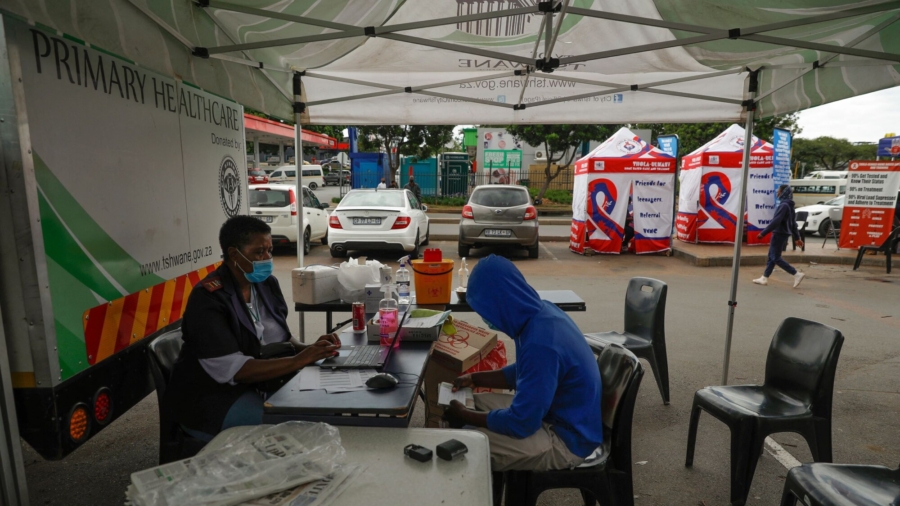South Africa has announced it will halt contact tracing and end quarantine for asymptomatic cases of COVID-19 as the dynamics of the outbreak warrant a shift towards mitigation and away from containment strategies, which are “no longer appropriate.”
The country’s director-general of health, Dr. Sandile Buthelezi, said in a Dec. 23 circular to heads of provincial health departments that only people who have developed symptoms need to get tested and isolate, with the quarantine period for those with mild symptoms set at eight days and severe COVID-19 cases for ten days.
COVID-19 is the disease caused by the CCP (Chinese Communist Party) virus.
“Containment strategies are no longer appropriate—mitigation is the only viable strategy,” Buthelezi said in the document. “Quarantine has been costly to essential services and society as many people stay away from their work and thus lose their income and children miss on their schooling.”
Buthelezi said that the shift towards mitigation is especially valid in the face of newer, more transmissible variants like Omicron, noting that new knowledge about the virus shows a high proportion of asymptomatic disease, a high degree of asymptomatic and pre-symptomatic spread, and that only a small proportion of cases are diagnosed.
“We never identify most high risk patients,” Buthelezi said, adding that testing is skewed towards a symptomatic minority and that the definition of “high risk” probably “isn’t meaningful anymore” as it doesn’t take into account newer, more highly transmissible variants like Omicron, doesn’t factor in aerosol spread, and doesn’t account for pre-existing immunity.
She said that the proportion of South Africans with some immunity from vaccination or past infection is high, citing several studies that show between 60–80 percent of people with natural immunity from past infection.
South Africa has led the continent in terms of COVID-19 cases and deaths, as well as vaccinations, and its experience has been closely watched around the world after it was among the first countries to identify the Omicron variant.
While Omicron has driven a sharp rise in infections in South Africa, these have not been accompanied by the increases in hospitalizations and deaths seen during previous waves.
Meanwhile, the White House said Friday that the Biden administration will lift travel restrictions on South Africa and seven other southern African countries imposed last month in a bid to curb of the spread Omicron.
Early studies from drugmakers indicate that some of the current treatments for COVID-19 seem to be effective against Omicron, while early data from South Africa suggests it is far less severe.
Still, even if Omicron infection does lead to less severe outcomes, its rapid growth rate—believed to come from a combination of higher transmissibility and increased immune evasion—will likely mean more infections and so “the absolute numbers of people with severe outcomes could be substantial,” the Centers for Disease Control and Prevention (CDC) said in a statement.
From The Epoch Times


